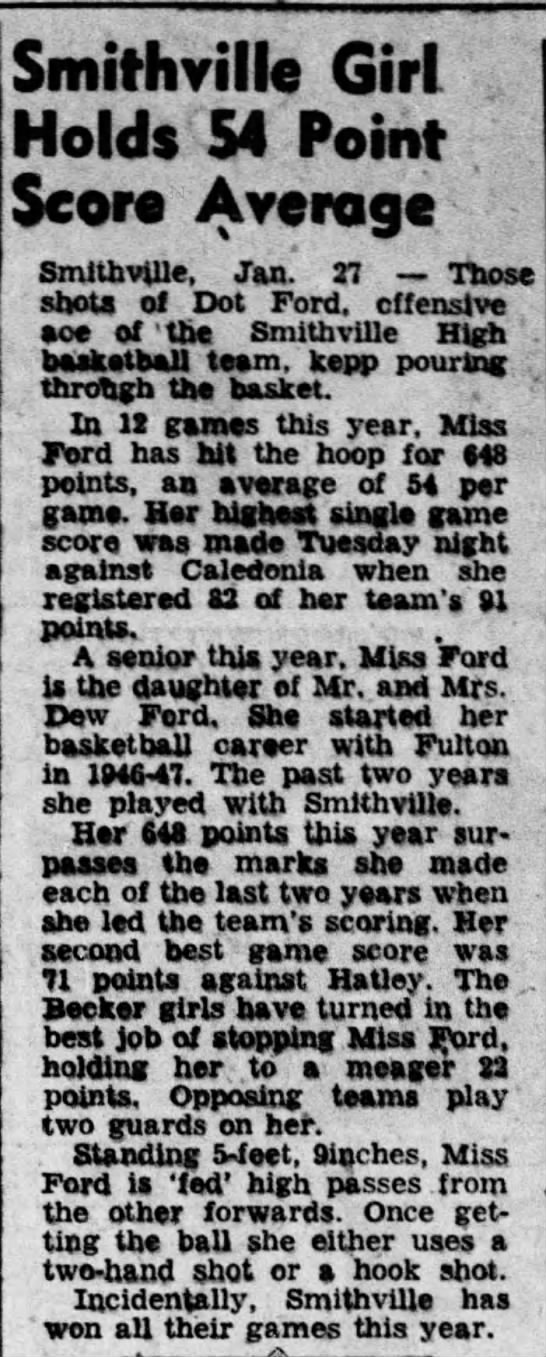Mississippi Today
Joe Burrow has deep roots (and quite the gene pool) in Amory, Mississippi

Joe Burrow has deep roots (and quite the gene pool) in Amory, Mississippi
Joe Burrow, the superb Cincinnati Bengals quarterback, inherited much of his remarkable athletic ability from a northeast Mississippi gene pool on his father's side of the family.
His dad, Amory native Jimmy Burrow, was an all-star safety on a Nebraska national championship team after walking on at Ole Miss and then transferring to the Cornhuskers. His uncle, Johnny Burrow, was a starting safety at Ole Miss. His grandfather, James, was the starting point guard for Mississippi State basketball in the early 1950s.
That's a lot, but that's not all. His grandmother, Dot Burrow (the former Dot Ford) once scored a state record 82 points in a high school basketball game for Smithville, six miles up the road from Amory, and averaged 49.5 points a game for an entire 30-game season.
In fact, when someone mentioned that Kobe Bryant once scored 81 points in a game for the Los Angeles Lakers, Joe Burrow quipped, “Yeah, but Kobe's still one short of my grandma.”
Late Sunday afternoon, James Burrow, 92, and Dot Burrow, 91, will watch the grandson they still call “Joey” and the Bengals take on the Kansas City Chiefs from their living room in Amory, where they watch all his games.
“Joey has told us he'll send a jet to fly us to the games,” James Burrow said Tuesday by telephone. “I told him, ‘But, Joey, we're too old to do all that walking, especially up all those steps.' So Joey said we wouldn't have to walk and that we can take an elevator up to his private suite. The truth is, we'd just rather watch here. That's a lot of travel when you're our age.”
Both of Joe Burrow's paternal grandparents were fine athletes in their day — as James puts it, “back in the dark ages.” James Burrow walked on at Mississippi State and became a two-year basketball starter at point guard for Mississippi Sports Hall of Famer Paul Gregory. He averaged 10 points per game, third highest on the team, as a senior. But James will be the first to tell you his high school sweetheart, Dot, was the better basketball player.
“When I was at State, I told all my teammates about my girlfriend back in Smithville who was averaging 50 points a game,” James Burrow said. “Nobody believed me, so I took a couple of them to a game when Smithville played near Starkville in Hamilton. Well, she scored 72 that night.”
A few nights later, nearly the entire State team went to nearby Caledonia to watch the amazing Dot Ford. “That was the night she scored 82, breaking her own state record,” James Burrow said.
Asked whether he ever played his future wife in a game of H-O-R-S-E, James Burrow chuckled and answered, “Oh no, I didn't want to mess with her.”
Years later, James Burrow was involved in Mississippi sports history in another way. He was the Amory schools administrator who hired high school football coaching legend Bobby Hall as the head football coach at Amory High.
“When he interviewed, I warned him, ‘Bobby, our cupboard is bare. You might not win a game,'” James Burrow recalled. “Bobby said, ‘If you hire me I guarantee you we'll win more than we lose.' Well, he won seven that first year.”
Two Amory state championships followed. Bobby Hall went on to win 309 games as a coach. Yes, and when Southern Miss head coach Will Hall (Bobby's son) attended his first day of school in kindergarten in Amory, Dot Burrow drove the yellow school bus that delivered him to his dad's football practice that afternoon.
“The Burrows are salt of the earth, good as gold,” Bobby Hall said.
James and Dot Burrow haven't always been too old to travel to watch grandson Joey play. During summers, they would travel to Athens, Ohio, and watch him play Little League baseball and summer league basketball. Said James, “Joey could hit the baseball a mile and field every position. In basketball, he could shoot it from anywhere on the court. He played varsity in the ninth grade. He played varsity in the ninth grade in football, too, both offense and defense, but when they went to the spread offense in his 10th grade season, he really took off.”
Most football fans know the rest of the Joe Burrow story. He was the Ohio Gatorade Player of the Year as a senior and signed with Ohio State. He transferred to LSU in 2018 and led the Tigers to the national championship and a 15-0 record in 2019, throwing for seven touchdowns in a semifinal victory over Oklahoma and six touchdowns in the national championship game against Clemson. That's perhaps the equivalent of scoring 82 points in a 32-minute high school basketball game.
That 2019 season, Burrow threw for 60 touchdowns, while throwing just six interceptions. Said Archie Manning, who knows the Burrow family well, “I really believe that's the best season any quarterback ever had and probably ever will have.”
It is difficult to imagine a better one. Naturally, Joe Burrow was the first pick of the 2020 NFL Draft. Through three NFL seasons, Joe Burrow has thrown for nearly 12,000 yards and 82 touchdowns. With the situation calls for it, he runs for crucial first downs as well. His original NFL contract called for $36 million over four years, but he becomes eligible for a contract extension this off-season. The Bengals would be fools to not to act on it. They will need a calculator with fresh batteries.
Needy children in Ohio and Louisiana will surely benefit, as they already have. The Joe Burrow Foundation, founded just last fall, already as already donated $200,000 toward helping children facing food insecurity and mental health issues.
Said James Burrow of his grandson's passion for helping children who desperately need help, “We're proud of Joey for a lot of reasons, especially that.”
This article first appeared on Mississippi Today and is republished here under a Creative Commons license.
Mississippi Today
On this day in 1951


April 28, 1951

Ruby Hurley opened the first permanent office of the NAACP in the South.
Her introduction to civil rights activism began when she helped organize Marian Anderson's 1939 concert at the Lincoln Memorial. Four years later, she became national youth secretary for the NAACP. In 1951, she opened the organization's office in Birmingham to grow memberships in Alabama, Florida, Georgia, Mississippi and Tennessee.
When she arrived in Mississippi, there were only 800 NAACP members. After the governor made remarks she disagreed with, she wrote a letter to the editor that was published in a Mississippi newspaper. After that step in courage, membership grew to 4,000.
“They were surprised and glad to find someone to challenge the governor,” she told the Chicago Defender. “No Negro had ever challenged the governor before.”
She helped Medgar Evers investigate the 1955 murder of Emmett Till and other violence against Black Americans. Despite threats, she pushed on.
“When you're in the middle of these situations, there's no room for fear,” she said. “If you have fear in your heart or mind, you can't do a good job.”
After an all-white jury acquitted Till's killers, she appeared on the front cover of Jet magazine with the headline, “Most Militant Negro Woman in the South.”
Months later, she helped Autherine Lucy become the first Black student at the University of Alabama.
For her work, she received many threats, including a bombing attempt on her home. She opened an NAACP office in Atlanta, where she served as a mentor for civil rights leader Vernon Jordan, with whom she worked extensively and who went on to serve as an adviser to President Bill Clinton.
After learning of Evers' assassination in 1963, she became overwhelmed with sorrow. “I cried for three hours,” she said. “I shall always remember that pool of blood in which he lay and that spattered blood over the car where he tried to drag himself into the house.”
She died two years after retiring from the NAACP in 1978, and the U.S. Post Office recognized her work in the Civil Rights Pioneers stamp series. In 2022, she was portrayed in the ABC miniseries, “Women of the Movement.”
This article first appeared on Mississippi Today and is republished here under a Creative Commons license.
Mississippi Today
Rare open negotiations occur on important Medicaid expansion issue
The curtain was pulled back last week for the first time in years on the Mississippi Legislature's often mysterious conferencing process.
A conference committee consists of three representatives and three senators appointed to try to reach agreement when the two chambers pass differing versions of the same bill. Last week, a conference committee formed to try to reach agreement on Medicaid expansion caused a stir by meeting in a public setting.
Even though the joint rules of the Mississippi Legislature call for an open conferencing process, the conferees seldom meet in public. They usually meet and negotiate their differences near the end of the session behind closed doors.
That was not always the case.
For a period in the late 1990s and early 2000s, the Legislature, under intense pressure from the Mississippi Press Association, made open conference committees the norm.
Some major issues have been played out in public conference committees. Notable open conferences include:
- The infamous, excruciatingly long special session in 2002 where businesses received more protection from lawsuits.
- Budget fights when Haley Barbour was governor when legislators often would reach an impasse in the negotiations process and spend the bulk of their time talking about their cars and eating candy.
- The major rewrite of the state's economic development package under then-Gov. Ronnie Musgrove called Advantage Mississippi.
- The Mississippi Adequate Education Program, which for decades has provided the state's share for the basic operation of local school districts. It was hammered out in an open conference process in 1997 even before the joint rules mandated the open process.
Then-state Sen. Musgrove and former House Speaker Billy McCoy deserve credit or blame, according to one's perspective, for proving the open conference process could work. When they chaired their respective chamber's education committees, they insisted on having an open conference process.
But in more recent years, open conference committees have been few and far between. The joint rule has been largely ignored.
The fact that the three House and three Senate conferees agreed to meet at least once in public on Medicaid expansion — one of the most pivotal issues facing the Legislature in recent years — drew considerable attention.
If nothing else, the open conference committee provided a raw and unedited view of how far apart the two chambers were at the time on an issue that would provide additional health care coverage to primarily the working poor.
The House wanted to provide coverage to those earning up to 138% of the federal poverty level, or about $20,000 annually for an individual, while the Senate had proposed providing coverage to those earning less than 100% of the federal poverty level, or about $15,000 per year.
According to various experts, the House plan would provide coverage to many more working Mississippians and cost less to the state than would the Senate plan. The reason for the lower cost to the state is that when expanding to 138%, the federal government will pay 90% of the costs and provide the state an additional roughly $700 million over two years as an enticement to expand.
Under the Senate plan, the federal government will pay 77% of the cost and offer no incentives. It is important to understand that in the expensive world of health care, the difference in 77% of the cost and 90% means tens of millions to Mississippi state coffers.
The House conferees repeatedly pointed out those numbers — their plan covering more at less cost — during last week's open conference committee.
One of the reasons legislators through the years have not been enamored with an open conference process is that it has often turned into efforts by the negotiators to sell their position to the public.
Once the open conference process starts, the side that feels the most comfortable with its position wants to meet more often in full view of the public to make sure the public understands where each side stands.
For whatever it is worth, the House conferees were more enthusiastic about continuing the open process after the initial Medicaid expansion conference committee.
And after that initial open conference, the Senate offered a compromise to cover those earning up to 138% of the federal poverty level — just as the House proposed.
This article first appeared on Mississippi Today and is republished here under a Creative Commons license.
Mississippi Today
Legislation to strip key power of PERS Board passes both chambers
Legislation that strips significant power from the board that governs the state's public employee pension program has passed both chambers of the Legislature.
Under the legislation set to go to Gov. Tate Reeves during the final days of the 2024 session, the Public Employees Retirement System Board would no longer have the authority to increase the contribution rate levied on governments (both on the state and local level) to help pay for the massive retirement system.
The legislation, which passed both chambers in recent days, was a reaction to the decision by the board to increase by 5% over a three-year period the amount local governments contribute to each employee's paycheck for their retirement. Under the PERS Board plan, the employer contribution rate would have been increased to 22.4% over three years, starting with a 2% increase on July 1.
The board said the increase was needed to ensure the long-term financial stability of the system that pays retirement benefits for most public employees on the state and local levels, including staff of local school districts and universities and community colleges.
City and county government officials in particular argued that the 5% increase would force them to cut government services and lay off employees.
Under the bill passed by the Legislature there still would be a 2.5% increase over five years — a .5% increase in the employer contribution rate each year for five years.
In addition, legislative leaders said they plan to put another $100 million or more in state tax dollars into the retirement system in the coming days during the appropriations process.
Under current law, the PERS Board can act unilaterally to increase the amount of money governmental entities must contribute to the system. But under the new bill that passed both chambers, the board can only make a recommendation to the Legislature on increasing the employer contribution rate.
The PERS Board also would be required to include an analysis by its actuary and independent actuaries on the reason the increase was needed and the impact the increase would have on governmental entities.
In the 52-member Senate, 14 Democrats voted against the bill. Only one House member voted against the proposal.
Sen. David Blount, D-Jackson, said the bill failed to address the financial issues facing the system. He said a permanent funding stream is needed.
Blount said, “You are moving in the wrong direction and weakening the system” with the bill the Legislature approved. “Is it painful? Is it going to cost more money? Yes, but we need to do it” to fix the system.
The system has assets of about $32 billion, but debt of about $25 billion. But Sen. Daniel Sparks, R-Belmont, and others argued that the debt was “a snapshot” that could be reduced by strong performance from the stock market. The system depends on its investments and contributions from employers and employees as sources of revenue.
The system has about 360,000 members including current public employees and former employees and retirees.
The legislation states that no changes would be made for current members of the system. The legislation does reference looking at possibly changing the system for new employees. But that would be debated in future legislative sessions.
The bill does not include an earlier House proposal to dissolve the PERS Board, which consists primarily of people elected by the members of the system, and replace them with political appointees.
This article first appeared on Mississippi Today and is republished here under a Creative Commons license.
-
Local News3 days ago
Sister of Mississippi man who died after police pulled him from car rejects lawsuit settlement
-
Mississippi Today3 days ago
At Lake High School in Scott County, the Un-Team will never be forgotten
-
Mississippi News1 day ago
One injured in Mississippi officer-involved shooting after chase
-
Mississippi News6 days ago
Cicadas expected to takeover north Mississippi counties soon
-
Mississippi News5 days ago
Viewers make allegations against Hatley teacher, school district releases statement – Home – WCBI TV
-
Mississippi News Video4 days ago
Vehicle struck and killed man lying in the road, Alcorn County sheriff says
-
Mississippi Today10 hours ago
On this day in 1951
-
Mississippi Today6 days ago
On this day in 1892









































